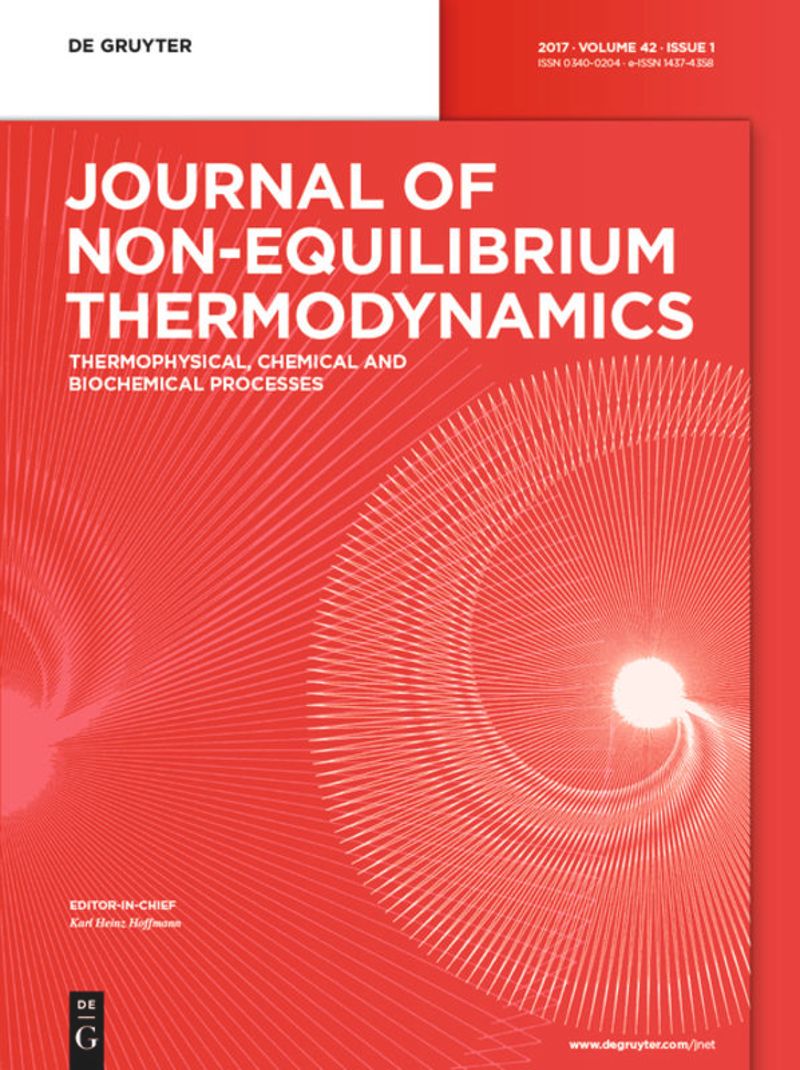A Hydrogen-fueled hybrid system based on HT-PEMFCs for simultaneous electrical power generation and high-value heat storage
IF 4.2
3区 工程技术
Q1 MECHANICS
引用次数: 0
Abstract
High-temperature proton exchange membrane fuel cells (HT-PEMFCs) inherently produce waste heat, leading to component degradation, increased cooling demands, and reduced efficiency and longevity. To mitigate these challenges, this study introduces isopropanol-acetone-hydrogen chemical heat pumps (IAH-CHPs), selected for their proven ability to efficiently upgrade and store the waste heat from HT-PEMFCs in a high-value form. Grounded in thermodynamic and electrochemical principles, a comprehensive mathematical model, incorporating key irreversible losses, is developed to evaluate the potential. Numerical calculations predict a 29 % increase in the hybrid system’s maximum power density compared to a standalone HT-PEMFC operating at 443 K, along with corresponding enhancements of 14.17 % in energy efficiency and 14.16 % in exergy efficiency. Preliminary predictions confirm the feasibility of this approach, and the optimal operating ranges for maximizing power density are identified. Additionally, exhaustive parametric studies reveal the impacts of various structural and operational parameters – such as leakage current density, phosphoric acid doping, relative humidity, operating temperatures, and critical factors within the heat pump cycle – on the system’s thermodynamic performance and key current density indicators. Local sensitivity analyses highlight effective performance regulation strategies. These results provide essential insights for mitigating waste heat challenges, enhancing system efficiency, and extending the operational lifespan for HT-PEMFCs.一种基于ht - pemfc的氢燃料混合系统,用于同时发电和高价值储热
高温质子交换膜燃料电池(ht - pemfc)本身就会产生废热,导致组件降解,增加冷却需求,降低效率和寿命。为了缓解这些挑战,本研究引入了异丙醇-丙酮-氢化学热泵(IAH-CHPs),因为它们能够有效地升级和以高价值的形式储存ht - pemfc的废热。在热力学和电化学原理的基础上,建立了一个综合的数学模型,包括关键的不可逆损失,以评估潜力。数值计算预测,与443 K的独立HT-PEMFC相比,混合系统的最大功率密度提高了29%,相应的能源效率提高了14.17%,火用效率提高了14.16%。初步预测证实了该方法的可行性,并确定了最大功率密度的最佳工作范围。此外,详尽的参数研究揭示了各种结构和操作参数(如泄漏电流密度、磷酸掺杂、相对湿度、工作温度和热泵循环内的关键因素)对系统热力学性能和关键电流密度指标的影响。局部敏感性分析突出了有效的性能调节策略。这些结果为减轻余热挑战、提高系统效率和延长ht - pemfc的使用寿命提供了重要的见解。
本文章由计算机程序翻译,如有差异,请以英文原文为准。
求助全文
约1分钟内获得全文
求助全文
来源期刊
CiteScore
9.10
自引率
18.20%
发文量
31
审稿时长
1 months
期刊介绍:
The Journal of Non-Equilibrium Thermodynamics serves as an international publication organ for new ideas, insights and results on non-equilibrium phenomena in science, engineering and related natural systems. The central aim of the journal is to provide a bridge between science and engineering and to promote scientific exchange on a) newly observed non-equilibrium phenomena, b) analytic or numeric modeling for their interpretation, c) vanguard methods to describe non-equilibrium phenomena.
Contributions should – among others – present novel approaches to analyzing, modeling and optimizing processes of engineering relevance such as transport processes of mass, momentum and energy, separation of fluid phases, reproduction of living cells, or energy conversion. The journal is particularly interested in contributions which add to the basic understanding of non-equilibrium phenomena in science and engineering, with systems of interest ranging from the macro- to the nano-level.
The Journal of Non-Equilibrium Thermodynamics has recently expanded its scope to place new emphasis on theoretical and experimental investigations of non-equilibrium phenomena in thermophysical, chemical, biochemical and abstract model systems of engineering relevance. We are therefore pleased to invite submissions which present newly observed non-equilibrium phenomena, analytic or fuzzy models for their interpretation, or new methods for their description.

 求助内容:
求助内容: 应助结果提醒方式:
应助结果提醒方式:


